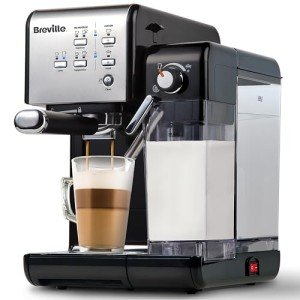Home Use Espresso Machines: A Comprehensive Guide
Espresso machines have actually become a staple in numerous homes as coffee lovers look for to reproduce café-quality brews in the convenience of their cooking areas. The increase in popularity has actually resulted in a varied market filled with different models, functions, and rates. This post intends to supply a useful overview of home use espresso machines, assisting readers browse their alternatives successfully.
Understanding Espresso Machines
Espresso machines work by forcing warm water through finely-ground coffee under high pressure, leading to a focused coffee beverage referred to as espresso. There are a number of kinds of espresso machines categorized based upon their brewing approaches and level of automation. The most common types include:
- Manual Espresso Machines: These require the user to manage the pressure and water flow, enabling a more hands-on coffee-making experience.
- Semi-Automatic Espresso Machines: These offer automatic control over water pressure, while the user by hand grinds and tamps the coffee.
- Automatic Espresso Machines: With the push of a button, these machines immediately control the circulation of water, making it easier to brew espresso with constant results.
- Super-Automatic Espresso Machines: These all-in-one machines manage grinding, tampering, developing, and even milk frothing, making them perfect for users trying to find convenience.
- Capsule or Pod Machines: These use pre-packaged coffee pods to produce espresso with minimal effort, but they restrict choice in developing strategies and tastes.
Table: Comparison of Espresso Machine Types
| Type | Control Level | Alleviate of Use | Cleaning up Level | Ideal For |
|---|---|---|---|---|
| Manual | User-controlled | Moderate | High | Coffee perfectionists |
| Semi-Automatic | Partial automation | Moderate | Moderate | Home baristas |
| Automatic | Completely automated | Easy | Low | Hectic people |
| Super-Automatic | Fully automated | Really easy | Extremely low | Convenience hunters |
| Capsule/Pod | Completely automated | Really easy | Very low | Casual drinkers |
Secret Features to Consider
When choosing a home use espresso machine, it's necessary to consider various functions that can substantially affect the quality of espresso and user experience.
- Pressure: Look for machines that supply at least 9 bars of pressure, as this is considered ideal for developing espresso.
- Boiler Systems: Single vs. dual boiler systems determine temperature stability and the capability to brew espresso and steam milk all at once.
- Grinder: Integrated mills permit newly ground coffee, which enhances taste. Think about machines with adjustable grind settings.
- Milk Frother: For those who enjoy cappuccinos and lattes, a built-in steam wand or automatic frother is vital.
- Size and Design: Consider your kitchen area area and visual choices. Machines are available in various sizes, from compact to big setups.
- Price: Home espresso machines can vary from a few hundred to a number of thousand dollars, so it's crucial to establish a budget before checking out alternatives.
Advantages and disadvantages of Home Use Espresso Machines
| Pros | Cons |
|---|---|
| Convenience of brewing coffee in your home | Initial investment can be high |
| Quality of espresso is frequently superior | Needs some skill, especially with manual machines |
| Capability to experiment with flavors | Maintenance and cleaning can be labor-intensive |
| Can conserve cash in the long run | Not all machines will fit every coffee choice |
Maintenance and Cleaning Tips
Maintaining an espresso machine is crucial for extending its life and making sure constant brew quality. Here are some beneficial tips:
- Regular Descaling: Minerals from water can develop in the machine. Descale every 1-3 months, depending upon water hardness.
- Daily Cleaning: Rinse portafilters, baskets, and steam wands after each use to prevent coffee oils from developing residue.
- Use Filtered Water: This can assist lower mineral buildup and improve the taste of coffee.
- Change Gaskets and Seals: These components may wear gradually and needs to be replaced to maintain pressure and efficiency.
- Read the Manual: Each machine has particular care directions; following these will guarantee longevity.
Frequently Asked Questions About Home Use Espresso Machines
Q1: What is the very best budget espresso machine?The best budget espresso machine frequently depends upon specific requirements, however models like the DeLonghi EC155 or the Breville Bambino are popular amongst users for offering fantastic value. Q2: How long do home espresso machines normally last?With appropriate maintenance, home espresso machines can last anywhere from 5 to 15 years, depending on the quality of the machine and frequency of use. Full Statement : Can I make cappuccinos and lattes with any espresso machine?While most espresso machines can make cappuccinos and lattes, having a dependable
steam wand or frother is vital for accomplishing the right milk texture.
Q4: Are super-automatic machines worth the investment?For those who prioritize benefit and quick brewing, super-automatic machines can be worth the financial investment, though they might lack some customizability in brew strength and taste. Q5: What kinds of coffee beans are best for espresso?While personal choice contributes, beans identified as" espresso "blends are typically roasted darker, creating rich flavors and a velvety texture when brewed.
Buying a home espresso machine can change the daily coffee regimen into something special, raising home brews to café quality. By comprehending the different kinds of machines, crucial functions to think about, upkeep requirements, and weighing the
advantages and disadvantages, customers can make informed choices that fit their private choices. As the espresso culture continues to grow, no matter the choice, every brew can be a tasty experience waiting to be appreciated.

